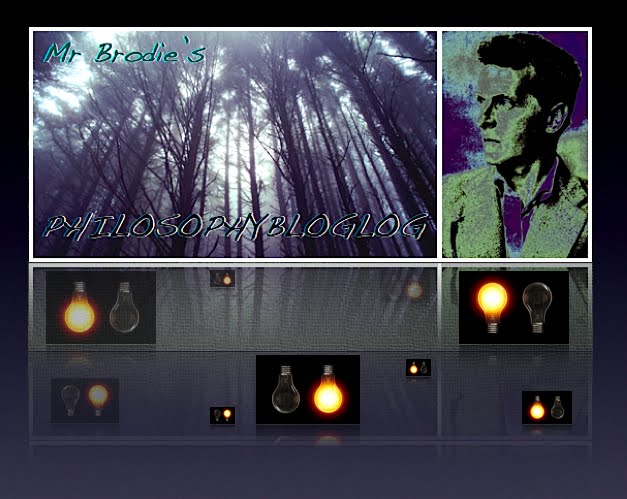We finished off Descartes (the first 3 Meditations anyway, which is enough for our purposes at the moment) and then got to grips with some of the important concepts they involve.
 The term 'a priori' which translates as something like 'before experience' doesn't really mean 'before' experience which makes it confusing. What it means is 'independent of' or 'outside of' experience, but the easiest way to think of it is as knowledge that you don't need to go and check by having a look at the world - you don't need 'empirical evidence' - you don't need to use your senses. So, you can know that the internal angles of a triangle add up 180º without having to go out and feel, sniff, see, hear or eat any triangles.
The term 'a priori' which translates as something like 'before experience' doesn't really mean 'before' experience which makes it confusing. What it means is 'independent of' or 'outside of' experience, but the easiest way to think of it is as knowledge that you don't need to go and check by having a look at the world - you don't need 'empirical evidence' - you don't need to use your senses. So, you can know that the internal angles of a triangle add up 180º without having to go out and feel, sniff, see, hear or eat any triangles. Think about a perfect circle. Because that's all you can do: think about it, that is, because a perfect circle does not exist anywhere in the real world (honest, Joe!) So you can only know a 'perfect' circle in an 'a priori' way. A problem with this kind of knowing is that it doesn't seem very different to 'imagining'. I can imagine a perfect circle then set out to try and build one and I might end up with something very useful for wheels and things. I can imagine a perfect society where everyone values learning, art and fairness, and I can set out to build one. So what's the difference? Mmm ... I'll stop there.
Although you should be aware, that the term a priori is not uncontentious (some philosophers suggest the term has no real meaning or content: see Michael Devitt's 'No Place for the a Priori' at http://web.gc.cuny.edu/Philosophy/people/devitt/papers.html
Unfortunately our exam board still seem to take the notion as a given (see Paper One, Q. 1, May 2009). I hope to point out their ignorance at a forthcoming meeting.
Although you should be aware, that the term a priori is not uncontentious (some philosophers suggest the term has no real meaning or content: see Michael Devitt's 'No Place for the a Priori' at http://web.gc.cuny.edu/Philosophy/people/devitt/papers.html
Unfortunately our exam board still seem to take the notion as a given (see Paper One, Q. 1, May 2009). I hope to point out their ignorance at a forthcoming meeting.























No comments:
Post a Comment